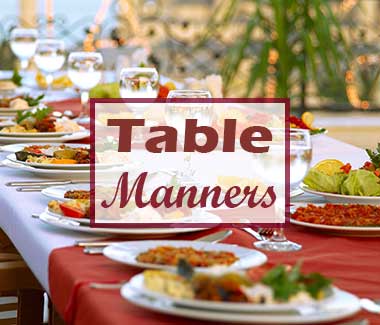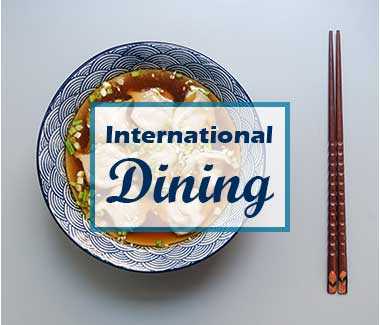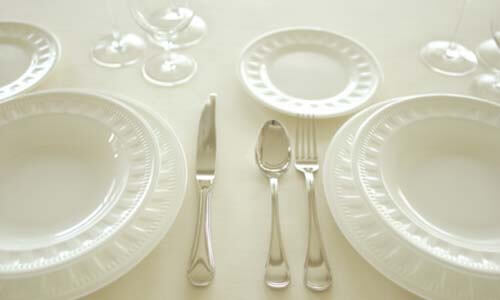Turkey Dining Etiquette
Dining etiquette for drinking. Tea is usually served in little curved glasses that you hold not by the stem, but by the lip: you never add milk, but you can add water as you drink it to dilute the tea, which is sometimes still steeping when you get it. Coffee is generally available. The coffee is drunk carefully (there are grounds on the bottom); it is also thick and black, and each cup is individually brewed, often with the sugar already in it, and milk is usually not to be added. Since it is offered all the time and everywhere, it is a gesture of hospitality and you must always take the coffee or tea, even if you only put it to your lips or just take a few sips. Your cup will always be refilled if it is less than half full. Because you must never pour your own drink, you must always be alert throughout the meal as to whether your neighbor's cup or glass needs refilling. If it is less than half full, it needs refilling; alternately, if yours is less than half full, your neighbor is obliged to refill it. If he or she does not, do not refill it yourself, for this will cause him or her to lose face; instead, diplomatically indicate your need by pouring a little more drink into your neighbor's glass, even if it doesn't really need it.
Dining etiquette for making a toast. If you are the honored guest, you will be expected to make a toast, usually soon after the host does or at the end of the meal, just before everyone departs.
Dining etiquettte for using utensils. Dining is done with forks and spoons and knives, Western style. The knife is held in the right hand, and the fork in the left. Do not switch hands for knives and forks.
Dining etiquette for smoking. Smoking is ubiquitous in Turkey. People smoke between courses during dinner.
Dining etiqette for seating. The host sits at the head of the table, with the honored guest seated next to the host. In addition, the honored guest sits on the side of the table farthest from the door. (At business meetings, the key people sit in the middle, flanked on either side in descending order by their aides, with the least important people sitting at the ends of the table farthest from the middle, and closest to the door; the arrangement is mirrored on the other side.) Men and women eating at someone's home might dine in separate areas (and spend the entire evening separated) or at separate times, with the men dining first
Dining etiquette for order of service. The honored guest is served first, then the oldest man, then the rest of the men, then children, and finally women.
Dining etiquette for beginning to eat. Do not begin to eat or drink until the oldest man at the table has been served and has begun. You may want to ask your host when it is appropriate to begin.
Dining etiquette for the end of the meal. At the end of the meal, it is appropriate to thank the host or hostess for a wonderful meal.
Dining etiquette for restaurants. In restaurants, you often order each dish as you want it, so that they are not ordered all at once at the beginning of the meal. In informal restaurants, you may be required to share a table. If so, do not force conversation: act as if you are seated at a private table. Waitstaff may be summoned by making eye contact; waving or calling their names is very impolite. Dining etiquette for business meals. Most business meals are lunches. Business meals are generally not good times to discuss business or make business decisions; they are intended to build the more important personal relationship. Take your cue from your Turkish associates: if they bring up business, then it's okay to discuss it, but wait to take your lead from their conversation. Water, and other drinks, may not be served until after the meal is over, as some believe that drinking while eating is not healthy.
Dining etiquette for eating in a home. When you are at a colleague's home for a formal meal, you will be invited to sit anywhere you like at the table; resist the impulse to sit down, and wait until your host gives you further instructions. These will generally come after the host or oldest man is seated, and often you will be placed at his side. It is a great honor to be invited into a Turkish home. Once inside, you may need to remove your shoes (this is not the custom in restaurants, however). If you move from room to room in a Turkish home, be sure to always allow the more senior members of your party to enter the room ahead of you. It is customary to say "Afiyet olsun" ("May what you eat bring well-being") before eating, and to say "Elinize saglik" (it is a compliment to the hostess, meaning "Bless your hand") after the meal.



